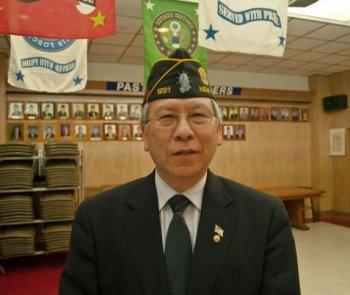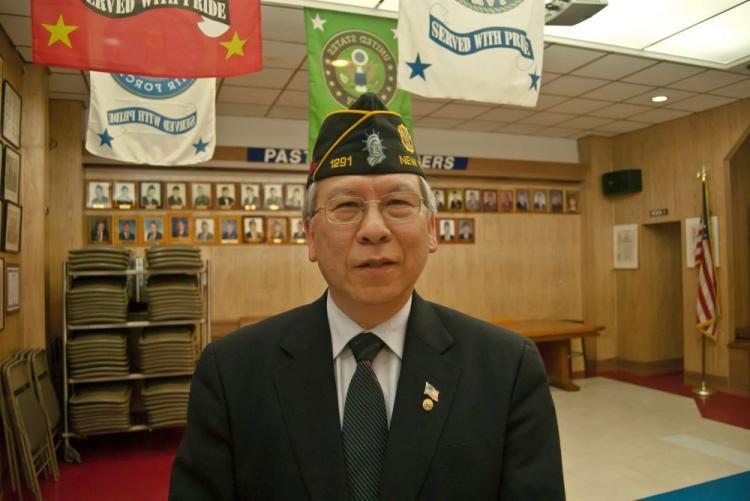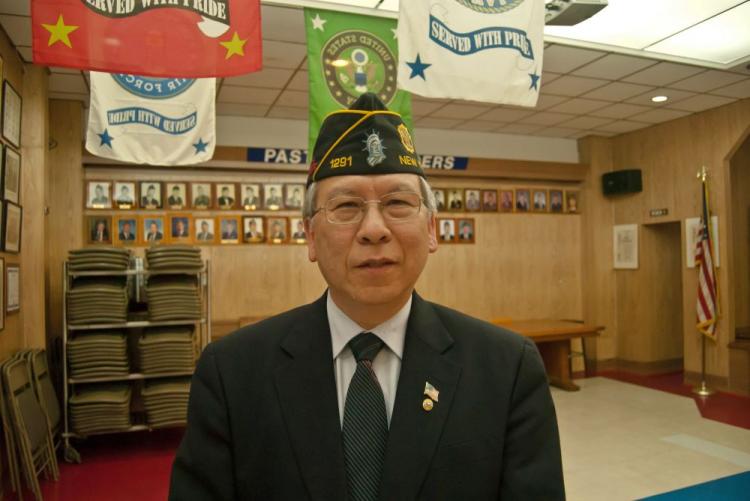American Legion Commander Candidate Describes Challenges for Veterans
Fang Wong reaches into his black suitcase and removes a small box. Above a stamp with Chinese characters is written “The American Legion.”

SUPPORTING VETERANS: Fang Wong stands for a photo at the American Legion Lt. B. R. Kimlau Chinese Memorial Post in New York City. Wong is a leading candidate to become the next American Legion National Commander. Joshua Philipp/The Epoch Times
|Updated:
Joshua Philipp is senior investigative reporter and host of “Crossroads” at The Epoch Times. As an award-winning journalist and documentary filmmaker, his works include “The Real Story of January 6” (2022), “The Final War: The 100 Year Plot to Defeat America” (2022), and “Tracking Down the Origin of Wuhan Coronavirus” (2020).
Author’s Selected Articles






